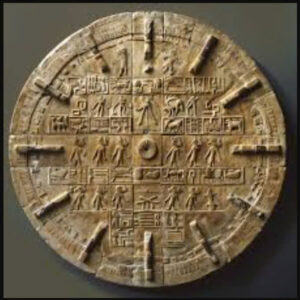Around 5000 years ago, the Sumerians, inhabitants of ancient Mesopotamia (modern-day Iraq), forever changed the way humanity perceives and measures time. Their development of a sophisticated numerical system, based on the number 60—known as the sexagesimal system—was a groundbreaking achievement. This system led to the division of an hour into 60 minutes and a minute into 60 seconds, a timekeeping convention that remains integral to our lives today.

The Sumerians’ society was primarily agricultural, and their need for precise timekeeping was driven by practical necessities. Accurate calendars were essential for determining the best times to plant and harvest crops, ensuring the success of their agricultural endeavors. Additionally, they needed to coordinate their complex religious ceremonies and administrative activities, which required precise timing.
To aid in their timekeeping, the Sumerians made significant advancements in astronomy. They meticulously observed the movements of celestial bodies, using this knowledge to create a lunar calendar consisting of 12 months. This calendar closely aligned with the agricultural seasons, allowing them to synchronize their activities with the natural cycles of the Earth.

The division of the day into 24 hours, each hour into 60 minutes, and each minute into 60 seconds was not an arbitrary choice. These divisions were designed to be practical and easily divisible, reflecting the Sumerians’ advanced understanding of mathematics. The number 60 was particularly significant because it is highly composite, meaning it can be divided by many different numbers (2, 3, 4, 5, 6, etc.), making it ideal for creating a flexible and consistent system.
The impact of the Sumerians’ innovative approach to time was profound and far-reaching. Later civilizations, including the Babylonians, Greeks, and Romans, adopted and further developed the Sumerian system. This continuity ensured that the Sumerians’ legacy lived on, influencing how we structure our days and organize our lives even in the modern era.
Today, as we glance at our clocks or plan our schedules, we are unknowingly paying homage to the ingenuity of the Sumerians. Their revolutionary approach to timekeeping has left an indelible mark on history, demonstrating the enduring influence of their contributions to mathematics, astronomy, and society at large. The Sumerians’ timekeeping system is a testament to their advanced understanding of the world, one that continues to shape our daily lives thousands of years later.
